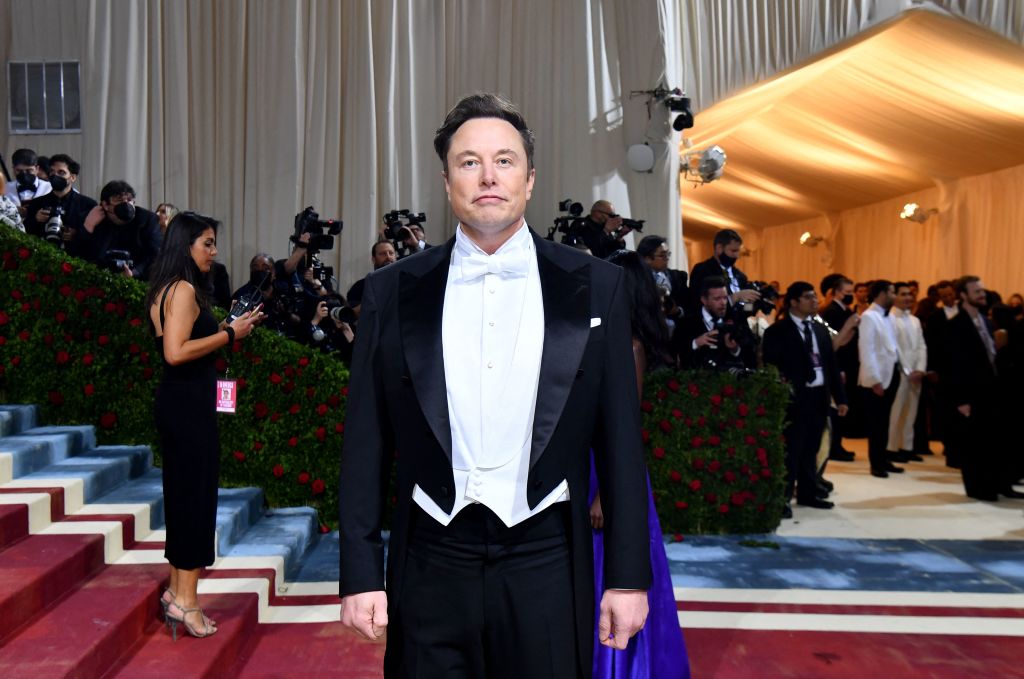The Musk temptation
Thanks to some complicated cocktail of educational sorting, communications technology changes and ideological realignment, so much of the day-to-day drama of contemporary politics seems to be defined by the relationship between an elite in-group and antagonistic outsider.
In a complicated and messy world, the allure of superhero stories is understandable. And so more and more of our politics is forced into a simplistic narrative about, depending on your point of view, a villain or hero. The outsider is either an existential threat to the status quo, or the only person who can save us from a decadent and self-interested elite. Either way, he is a main character.
For years, the part of the outsider was played by Donald Trump. But ever since his acquisition of Twitter, Elon Musk has stepped into the role. In a matter of weeks, the eccentric, brilliant tech billionaire has become the main event: the subject of a traffic-driving media feeding frenzy, in which his every move is commented on, dissected, critiqued. (One thing Musk’s critics are less keen to delve into, though, are the revelations in the Twitter Files — the internal documents released by Musk over the last few weeks.)
Like Trump before him, Musk seems more than happy to feed the beast. He is an incorrigible user of his own social network, somehow finding the time to crack jokes and sharing memes between saving Twitter, building world-beating electric cars and sending humankind to Mars.
One recent Musk tweet received outsized attention. On Sunday, the Twitter CEO wrote, “My pronouns are Prosecute/Fauci.” Cue freak-out. Democratic lawmakers lined up to criticize the post. Musk was “pandering to anti-vaxxers,” even endangering a dedicated public servant. An Atlantic columnist explained why Musk was now a “far-right activist.” It was proof positive that Musk was a hypocrite, a danger to democracy and public enemy number one. (In truth, the tweet did little more than confirm that Musk derives considerable enjoyment from winding people up.)
But as liberal America grows increasingly fixated on Musk, will the most powerful liberal in America buck the trend? Semafor’s Max Tani recently reported that the White House “isn’t stressed about Elon Musk’s Twitter.” An administration official told Tani, “There’s a crowd within the White House that cares about disinformation and thinks it’s a major problem for Democrats narrowly and democracy more broadly. But it’s probably a minority.”
And yet, the White House deemed Musk’s Fauci tweet notable enough to denounce it as “incredibly dangerous” and “disgusting.” The president wants as many Americans as possible driving American cars but has been snippy about and unsupportive of Tesla. As Musk was lining up his Twitter purchase earlier this year, Biden hinted at an investigation into the move on national security grounds.
As well as reflecting a personal beef, whether or not the White House can avoid the temptation to wade into the Great Musk War of 2022 is representative of a broader challenge for the administration to remind itself that Twitter is not the real world. And that politics is about a whole lot more than Elon Musk.
*** Sign up to receive the DC Diary in your inbox here ***
Why can’t Trump swing it for McCarthy?
One of the many intriguing things about Kevin McCarthy’s struggle to become the next Speaker of the House is Donald Trump’s role in the process. The once and possible future president has been oddly quiet since his splashy and early announcement of a 2024 run last month. But from his sunny redoubt in Palm Beach, Trump has sought to influence hardline House Republicans weighing whether to back McCarthy.
The New York Times reports that Trump has swung behind “My Kevin,” hitting the phones to persuade Freedom Caucus members to support McCarthy. Views on McCarthy among this group aren’t straightforward. There is a loud group of critics who see McCarthy as too reluctant to play hardball. But others are more supportive, including Marjorie Taylor Greene, who has been on the receiving end of a McCarthy charm offensive ever since she arrived in Washington.
While the anyone-but-McCarthy campaign has failed to gather momentum in the last few weeks, Trump’s inability to swing boisterous ultra-MAGA members of Congress behind the frontrunner to be Speaker is nonetheless a telling indicator of the former president’s present standing in the party.
Major erasure at the White House
My main takeaway from a Christmas party at the White House last night concerned presidential pets. Yes, the spread was tasty and the decorations were beautiful, but there is a shocking omission from the display. Commander, the German Shepherd whom the Bidens moved into the White House last December, features prominently in the decorations, with a kind of papier-mâché model of him with the Bidens’s cat, Willow. Meanwhile, Major, the dog the Bidens had to send away a year ago because he kept biting staff members, has been ruthlessly memory-holed. Not featured in any pictures or Christmas displays. Biden is nothing if not a cutthroat political operator, including, it seems, when it comes to his pets.
What you should be reading today
Bruce Bawer: Gay marriage has nothing to do with Drag Queen Story Hour
Katherine Dee: A nation of lone wolves
Ben Domenech: The Twitter Files communication breakdown
Jonathan Martin, Politico: Why the 2024 race is eerily quiet
Adrian Wooldridge, Bloomberg: Two cheers for the tyrant in the corner office
Jonathan S. Tobin, Commentary: Triumph of Trump’s amateurs
Poll watch
President Biden job approval
Approve: 41.5 percent
Disapprove: 53.8 percent
Net approval: -12.3 (RCP Average)
Has social media been a good or bad thing for democracy?
Among Americans
Good thing: 34 percent
Bad thing: 64 percent
Average across nineteen countries
Good thing: 57 percent
Bad thing: 35 percent (Pew)

























